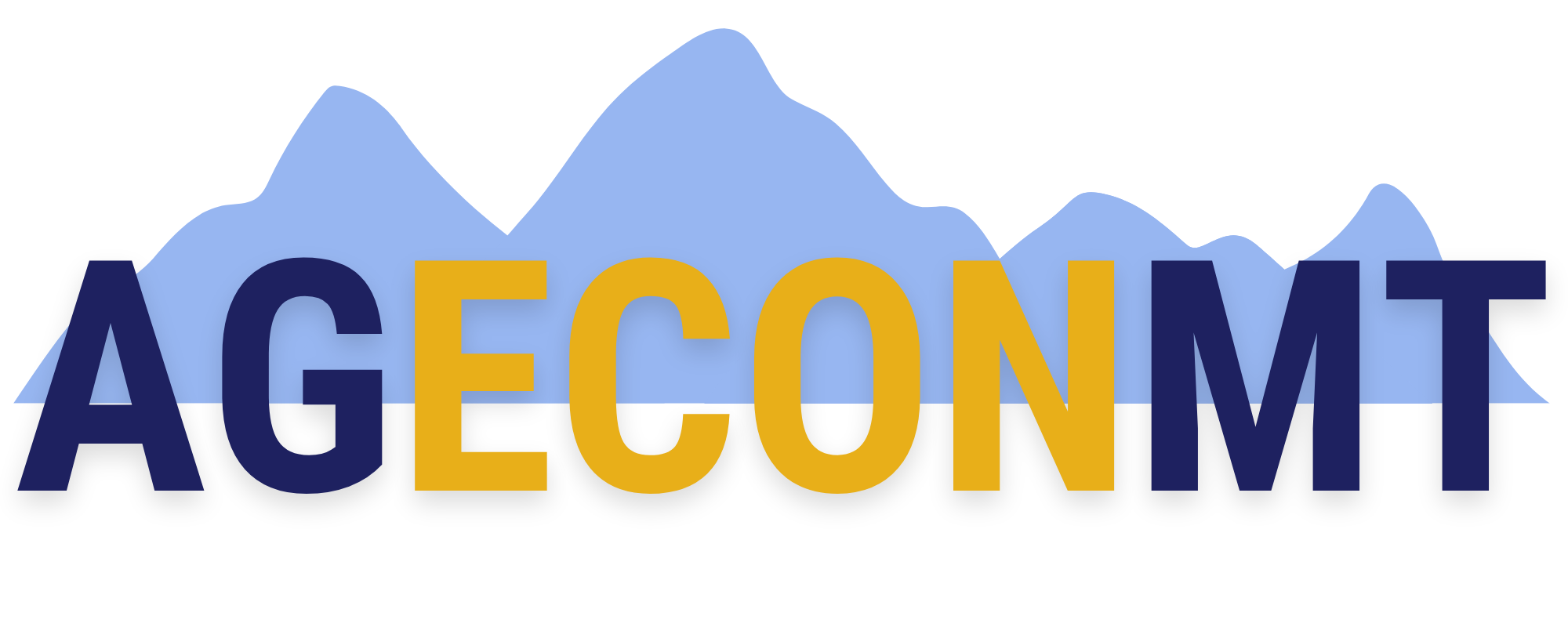Graduate Program Frequently Asked Questions
The program at Montana State has several unique features:
- Montana State University has a well-developed focus on applied microeconomics. The dominant areas of faculty research include environmental and natural resource economics, agricultural economics, health, labor, and public economics. Information about individual faculty and their research areas can be found here.
- The program emphasizes research, culminating in a year-long thesis project. Although this project is independent research conducted by our students, faculty members are involved in all stages of the process, from providing significant mentoring to producing collaborative research.
- The program is designed to bridge undergraduate and PhD programs. The coursework focuses on foundational microeconomics, econometrics, data science, and research methods. The program does not include field courses. A high percentage of students admitted are considering PhD programs in the future.
All students in the M.S. in Applied Economics program are expected to complete an original research project culminating in a thesis defense in the second year of the program. Students work collaboratively with faculty to form a thesis committee that includes a major advisor. In consultation with their graduate committee, students select, research, write, and defend a thesis topic to complete a program of study consistent with their interests.
Faculty members take an active interest in each of our graduate students. The high level of one-on-one contact with faculty has led to a significant volume of co-authored, published research and is consistently given high praise among our alumni.
Examples of Collaborative Research Published by Former MS students and Current DAEE Faculty.
See the Agricultural Economics & Economics Master's Program page for employment prospects and preparation for Ph.D. study. Additionally, check out the department's Careers and Scholarships page for more information about current employment and fellowship opportunities.
Financial assistance is an integral component of our graduate program. The primary form of financial assistance is a graduate assistantship in the form of a stipend and partial tuition waiver. Graduate assistantships are awarded on a competitive basis, with typically 7-10 funded slots in each cohort. There is no separate application for assistantships.
Each student on an assistantship is assigned to work for 19 hours a week for one or two faculty members, assisting with their ongoing research and/or teaching work.
The funding offer typically includes a stipend, a waiver for 7 tuition credits, and in-state status for any other tuition and fees. The stipend is typically $1500 to $1800 a month, and it covers both academic years and the summer.
The tuition waiver reduces the cost of the program for funded students to approximately $4000 in the first year. Tuition and fees for the second year vary depending on whether a student graduates in 3 or 4 semesters and whether they take courses in other departments. For example, some students who plan on a PhD program may take additional math or statistics courses to strengthen their applications. Health insurance is also required and may be an additional cost.
We do not pre-screen applicants, but the entire committee evaluates all applications after the January 15th deadline. We make funding offers to top applicants at that point. See the requirements for consideration here. Please note the required economics and math courses to be considered.
The university does not provide fee waivers.
Yes, the program is STEM certified.
The university establishes the list of countries that require evidence of English proficiency. The department does not make individual exceptions to this list.
No. Submit your application through the Graduate School. Admissions decisions are made at the department level, not by individual faculty members. It is not necessary to contact individual faculty members before applying.Please do not send transcripts or CVs/resumes to faculty who have not previously asked for them.
Students are not assigned to the research team of individual faculty members. You will form a thesis committee after getting to know many of our faculty in the first year. Students are often able to work with their preferred adviser, but this is not guaranteed.However, we would like to know who you are interested in working with. Your personal statement should describe your research interests and how they relate to the research programs of specific faculty members.
We make admission decisions in early February along with an initial round of funded offers. Students who are not given a funded offer are placed on a waitlist.
The M.S. program in Applied Economics typically has 5-10 funded slots in a given year, with the exact amount varying from year to year. Applications to be considered for funding are due January 15.
Initial award and acceptance letters are sent in February.
International applicants must apply by January 15 to have a decision in time for visa processing.
- July 1: Application opens for Fall admission of the next year.
- January 15: M.S. Priority application deadline to be considered for funding. International applicants must apply by this deadline.
- March 15: Application closes.

